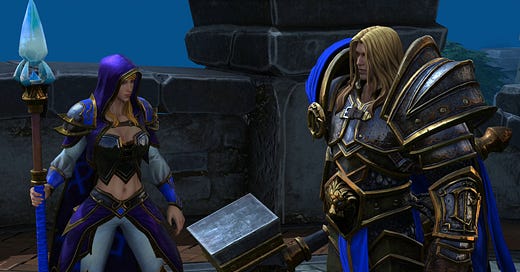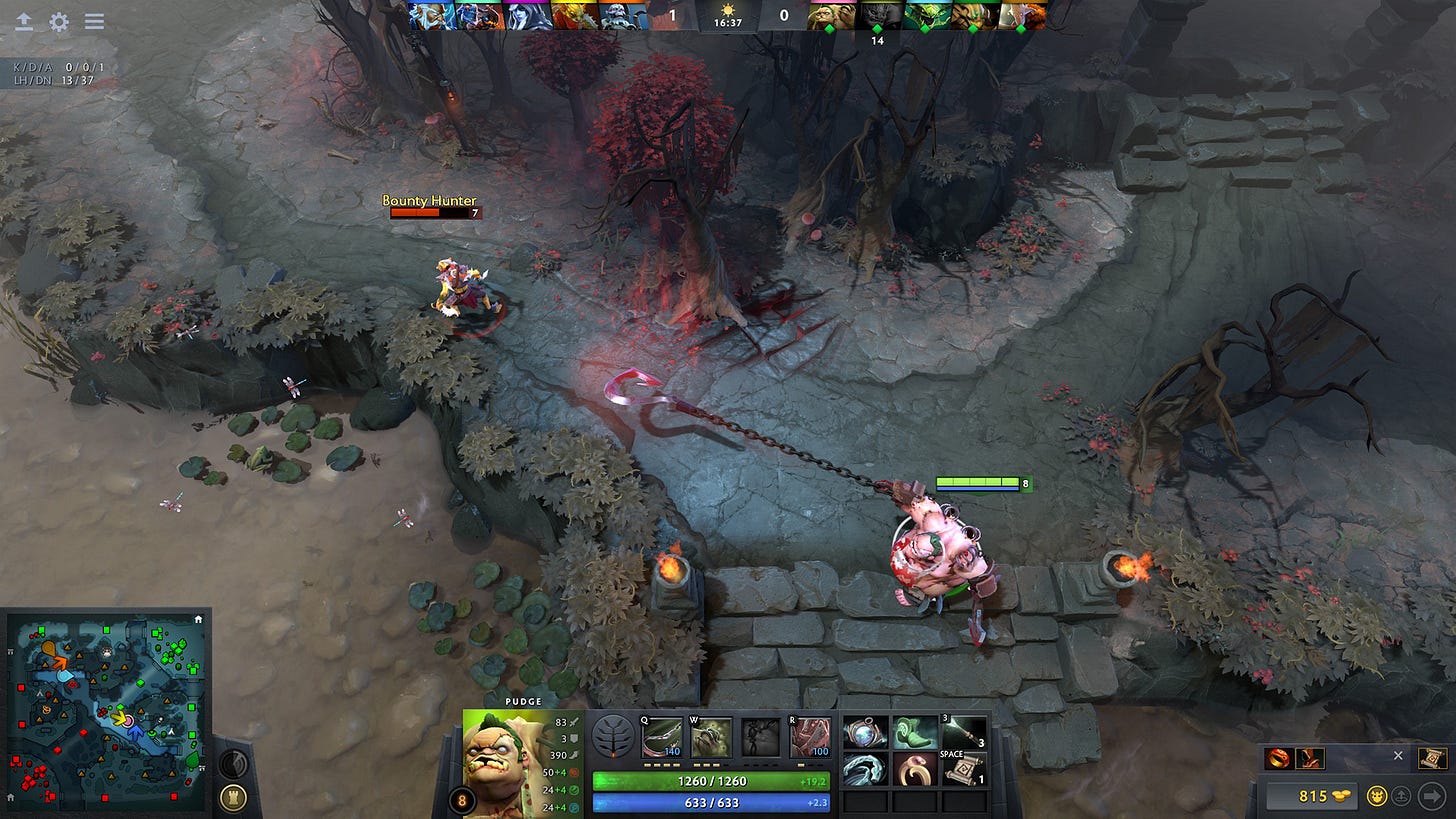The impulse to safeguard the work of our hands is a natural one. But when that impulse is lifted out of the realm of personal responsibility and codified into systems of exclusion, it ceases to be stewardship and becomes something else entirely. Ideas are not acres to be fenced. They do not wear out with use. Yet we have built a regime that treats them as real estate as if they are something to be hoarded, policed, and commodified. The modern architecture of intellectual property law does not protect creativity; it fences it off, erects toll booths, and stations sentries along the perimeter.
When we speak of "property" in this context, we should pause. A song is not a shovel. A game mechanic is not a field of wheat. One does not diminish because another partakes. To call an idea "property" is not to describe something natural but to enact a decision about power: who gets to say yes, and who is forced to say nothing at all.
In the early 2000s, I spent countless hours with Warcraft III. Not because I was interested in the official campaign, but because the players had taken the tools Blizzard gave them and created something beyond what the designers imagined. Entire new genres were born in that community—tower defense, hero arenas, and most famously, the mod that became Dota 2. These were labors of love. And they were possible because there was a brief window when companies had not yet learned to enforce.
It is tempting to think this was a golden age of openness, but it was not openness by design. It was neglect. A moment when the legal machinery had not yet caught up to what the culture was doing. The result was beautiful. But it could not last.
READ: Black Fetish Tattoos And The Illusion of Neutrality
Today, enforcement is no longer manual. It is algorithmic. Platforms do not wait to be sued; they preemptively suppress. YouTube deploys Content ID to flag and demonetize. Steam decides what mods are permissible. The law does not require platforms to verify ownership, only to avoid liability. This is not a neutral process. It is a pattern of ever-narrowing permission.
Meanwhile, the contradictions are absurd...
While working at a roadside fireworks stand in the days leading up to the Fourth of July, I noticed a product called "Wrath of the Beast," a fountain firework, retailing for $54.99, emblazoned with unmistakable imagery from Blizzard’s Warcraft III: Thrall and Kel’Thuzad, their faces spliced together in a digital collage. No lawsuit. No cease and desist. No algorithmic sweep. It sits in plain sight, in a tent, for cash. Meanwhile, a teenager who posts a fan edit containing ten seconds of copyrighted music finds their video buried before anyone can hear it.
The law hasn’t changed. What has changed is the machinery of enforcement—impersonal, asymmetrical, and automated.
READ: Grift Wars: What Is The Internet For?
And let us not forget: we do not even own what we buy. In the digital age, this truth is more visible: games can be revoked, songs deleted, and terms of use rewritten after purchase. But the illusion predates downloads and streaming. Even with physical media, one never truly owned the work itself. A disc granted you access, not possession. You were permitted to use it, but only within the boundaries of another’s intent, not your own. You bought plastic and permission, and nothing more.
For years, this fiction was tolerated because enforcement was practically difficult. One could lend, copy, remix, or modify. Unless the act was egregiously public or profit-seeking, no one noticed. But now enforcement has been mechanized. The issue is not simply control, but scalability. Companies can sue platforms, not just people. They can rely on AI, not individual complaints. And the fiction of non-ownership becomes an apparatus for total governance over use.
To the credit of the framers of copyright law, there was at least a recognition that ownership of culture should not last forever. Works must lapse into the public domain. Ideas must be set free. But those time limits were conceived in an era when information moved slowly, and media was scarce. They did not imagine a world in which nearly all human expression could be copyrighted and indefinitely policed. The laws were not written for this reality. They have become an engine of cultural hoarding.
What kind of culture does this produce? One that fears remix. One that distrusts homage. One in which the most natural form of play (taking what exists and reshaping it) is treated as theft. We forget that some of the most transformative games in history began as mods, not as products. Not because someone received permission, but because they created before the gate could be locked.
Intellectual property, as it stands, treats imitation as invasion and collaboration as a threat. But Christian tradition has long understood that creation is not a zero-sum game. To share is not to lose. To receive is not to steal. Culture is a gift economy, corrupted by the illusion that control ensures justice.
This is not a call for chaos. But it is a call for humility. Not everything needs to be owned. Not every expression requires a lawyer. And not every cultural transaction should be translated into market value.
Play is not private property. And if we want a culture that grows, we must stop enforcing like it is.
NEXT: A Silent Ache - What VTubers and Loli Culture Tell Us About Society










Given the number of authors here there are many who will disagree with what I am about to say, and that is fine. In my opinion, the core at the heart of all of this is the excessively extended time frames given to copyright and patents. In my opinion, both should have a limit of 7 years during which the idea must be publicly accessible via the open market to the general public. In addition there should also be a no more than a 3 year pre-market phase to give time to write the book, conduct clinical trials, productize the physical good, etc. during which the idea can't be marketed or sold, but gives development time. If you don't need a full 3 years, than you can shift to the 7-year market phase at will, but it's a one way gate. That gives a monopoly of up to 10 years to be compensated for your labors. If you fail to keep it on the market during the 7 years, you lose the monopoly.
Wow private servers set up in Russia are the place to go. Private servers for any game really